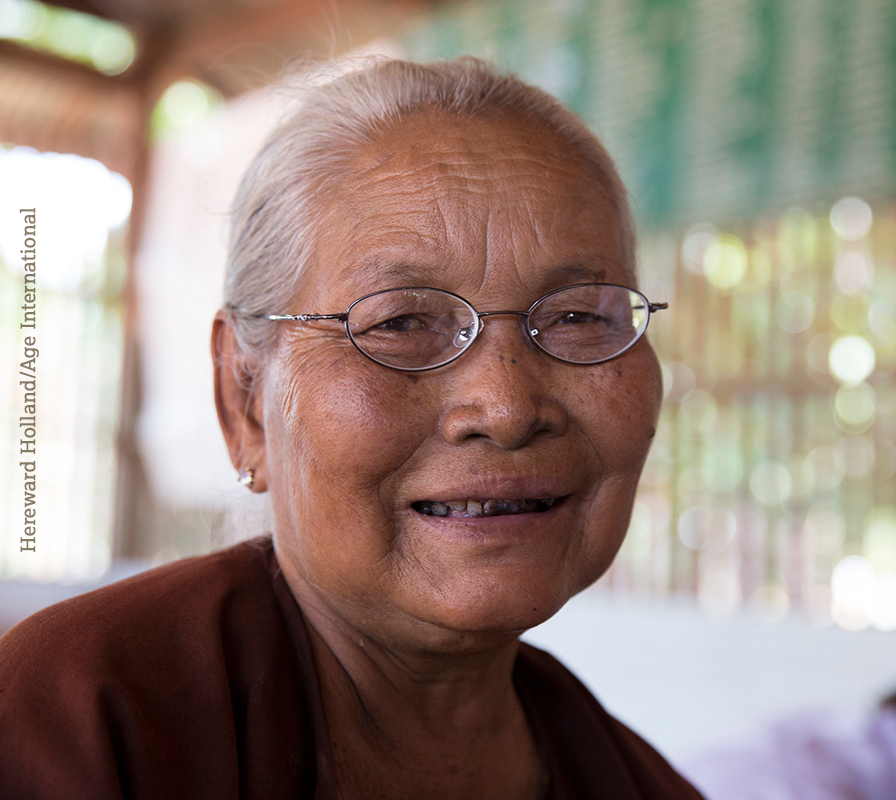
We understand that the OEWG is now included in the UN calendar. What is the significance of that and what does it mean for the meeting schedule?
This is a very important development because it raises the status of the OEWG. Full interpretation into the 6 UN languages and other administrative services are guaranteed and the organising committee (known as the Bureau) can ensure the meeting takes place at a convenient time of year. When the OEWG was not part of the official calendar, it had to take place whenever meeting rooms were free, which was usually in July or August when all the diplomats were on holiday!
Can you tell us briefly about the thematic focus of this 10th session?
The 10th session had two parts: 1) a general discussion on older people’s rights to social protection, to education and to lifelong learning, and 2) a more in-depth look at the components of the older people’s rights to autonomy, care and support and palliative care.
What are the key challenges faced by older persons globally in regard to education and life-long learning?
Ageism was identified as a major barrier because education is usually seen as something only for the young and because older people are perceived as not being able, or not wanting, to learn. Equally important is the fact that older people are not given a say in what they want to learn and how they want to learn it. Many say they don’t have the skills or knowledge they need or want to live dignified, meaningful and fulfilling lives. What is exciting about looking at education and learning from a human rights perspective is that it provides an opportunity to rethink how we understand learning in older age, what its purpose is and how older people themselves can shape what and how they learn.
Social protection and social security are issues that are raised repeatedly. What are the key elements of these issues?
The first thing to establish is the purpose of the right. Once you’ve established that, then the different normative elements (or components) of the right fall into place. A growing consensus is emerging that human rights in older age are all about ensuring we can live dignified, autonomous and meaningful lives and participate fully in society.
In order to do this, the right to social protection and social security must guarantee that all older people have access to social protection and social security schemes that are of a high enough value so they can live dignified lives and participate as full members of society.
These schemes must be available to older people without discrimination of any kind. Information about schemes and who is eligible must also be made available. Schemes must be acceptable to older people and appropriate to the different types of risks they face. Support must be available to older people so they can make their own decisions about how they use the income or other entitlements, and there must be complaint or appeal processes they can use when they are denied any aspect of this right.
How many HelpAge network members were there? What were their roles?
Fifty one network members and partners have officially registered to take part in the OEWG process. Nineteen sent written information in advance of the session and eleven attended, including two from Nepal and one from Bangladesh. Network members play a critical role before and during the OEWG sessions, ensuring the voices of older people in their communities inform and influence the discussions. Those present in New York spoke to their government representatives, made interventions during the plenary discussions, took part in lunchtime events and were an active part of the growing civil society presence.
As HelpAge, what are we planning to do to achieve the realisation of a UN convention on the rights of older people?
We know the most important thing all of us in civil society can do to get a new convention is to lobby at home in our own capital cities. This is where governments decide if they support the convention. At the 10th session, Nigeria and Cameroon came out in support of a new convention for the first time. Civil society organisations in these countries decided this was what they wanted and made it happen through their efforts. Support for a convention is growing but we still need more countries to join us so we can get an agreement from the UN to start drafting. It is people in civil society who have the power to make change happen, and our advocacy with governments is the key to progress. Together we will get the convention we need to secure the fair and just society we all want to live in.

